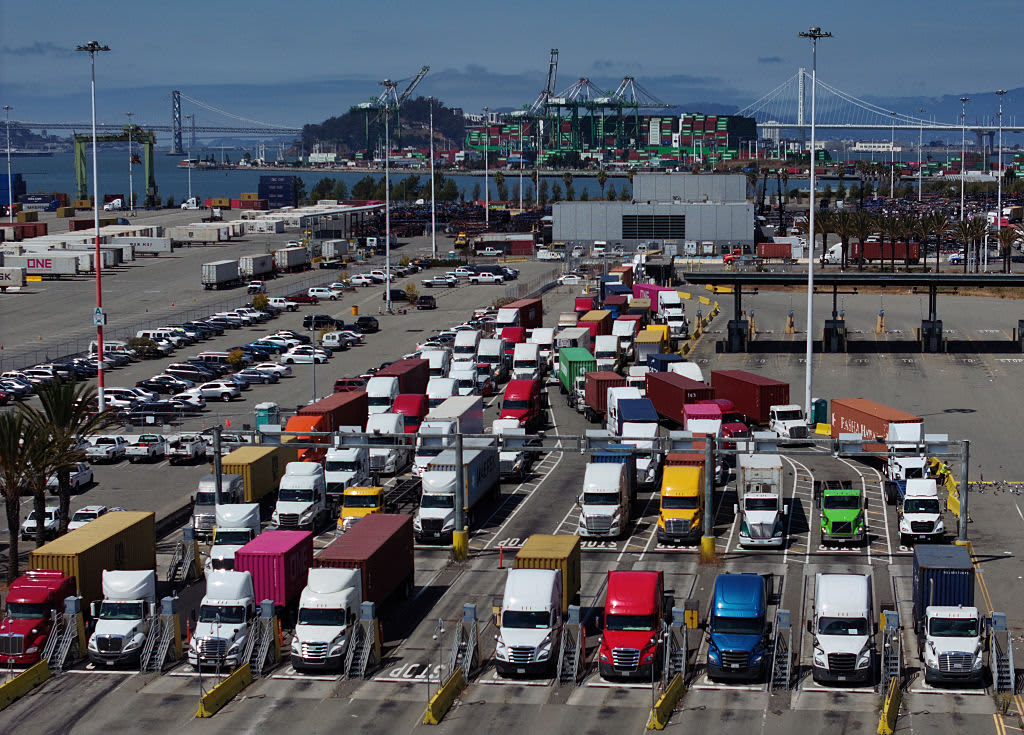U.S. President Donald Trump said Thursday night stateside that he would impose a 25% tariff on imported heavy trucks from Oct. 1, part of his broader push to boost domestic manufacturing.
“All ‘Heavy (big!) Trucks’ made in other parts of the world” will face the higher tariffs, Trump said in a post on Truth Social, attributing the move to protecting U.S. manufacturers from “unfair outside competition” and addressing national security concerns.
“Large Truck Company Manufacturers, such as Peterbilt, Kenworth, Freightliner, Mack Trucks, and others, will be protected from the onslaught of outside interruptions,” Trump added.
The decision came as Trump aimed a swath of imported goods with fresh tariffs, including 100% duties on branded drugs, 50% tariffs on kitchen cabinets and 30% on upholstered furniture, according to Trump’s posts on Truth Social. All the new tariffs will also take effect from Oct. 1, Trump said.
“We are looking forward to reviewing the details of the Medium and Heavy Truck Section 232 announcement made by the President,” said a spokesperson for PACCAR, which owns Peterbilt and Kenworth.
Daimler Truck, parent company of Freightliner, and Mack Trucks, part of the Volvo Group, did not immediately respond to CNBC’s request for comments.
The announcements followed several new investigations by the administration into imports of robotics, industrial machinery and medical devices to determine if they pose national security risks.
The probes were opened under Section 232 of the Trade Expansion Act, a provision that allows tariffs on national security grounds. The statute has previously been used to impose levies on numerous sectors, including automobiles and parts, copper, steel and aluminum.
The higher duties on kitchen cabinets, bathroom vanities and certain furniture were due to “large scale FLOODING” of these imports into the U.S. and were hurting local manufacturers, Trump said on Truth Social.
The sweeping tariff threats left many questions unanswered, including whether the new sectoral levies fall under existing trade deals, said Deborah Elms, head of trade policy at Hinrich Foundation, adding that they will almost certainly drive up prices for American buyers.
U.S. production of heavy-duty trucks has rebounded in recent years, with the monthly shipment value more than tripled to $3.2 billion in July this year from a multiyear-low of around just $1.1 billion in April 2020, according to data from the Federal Reserve Bank of St Louis. This year, however, the value of the monthly shipments has been on a modest decline, the data showed.
Mexico was the largest exporter of medium- and heavy-duty trucks to the U.S. last year, followed by Canada, Japan, Germany and Turkey, according to the Commerce Department’s International Trade Administration.
Domestic heavy-truck manufacturers may see little benefit from the tariff hikes, if the materials needed for manufacturing still face high duties, said David Forgue, a partner at Chicago law firm Barnes, Richardson & Colburn.
The scale of impact on the industry will hinge on whether certain “tariff offsets,” similar to those on light-duty cars and trucks, are introduced, he added.
In April, Trump granted such reprieve for the automotive sector — which faced 25% tariffs — by allowing manufacturers to apply for an “import adjustment offset” for vehicles that undergo final assembly in the U.S. The offset amount would equal 3.75% of the vehicles’ retail prices, according to the White House.
“Without something like that, the input tariffs will continue to be a drag on manufacturing,” Forgue added.
Earlier in April, the Commerce Department launched a probe into imports of medium- and heavy-duty trucks, parts and related products, inviting companies to submit their projected demand for these items, according to a Federal Register notice.
The notice defined “heavy-duty trucks” as those with a gross vehicle weight rating of 26,001 pounds or more.
International: Top News And Analysis
Read the full article <a href="Read More” target=”_blank”>here.


